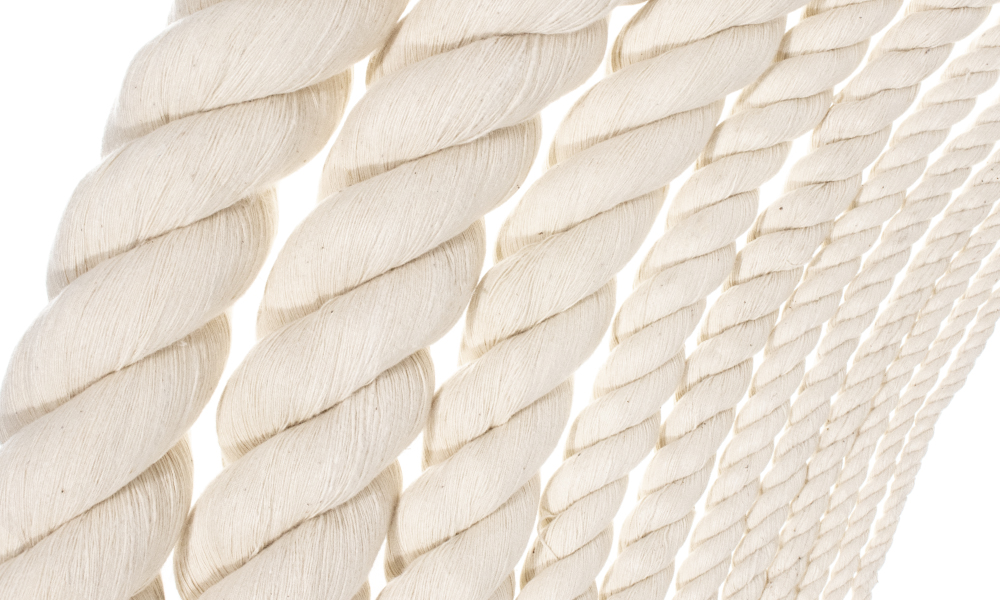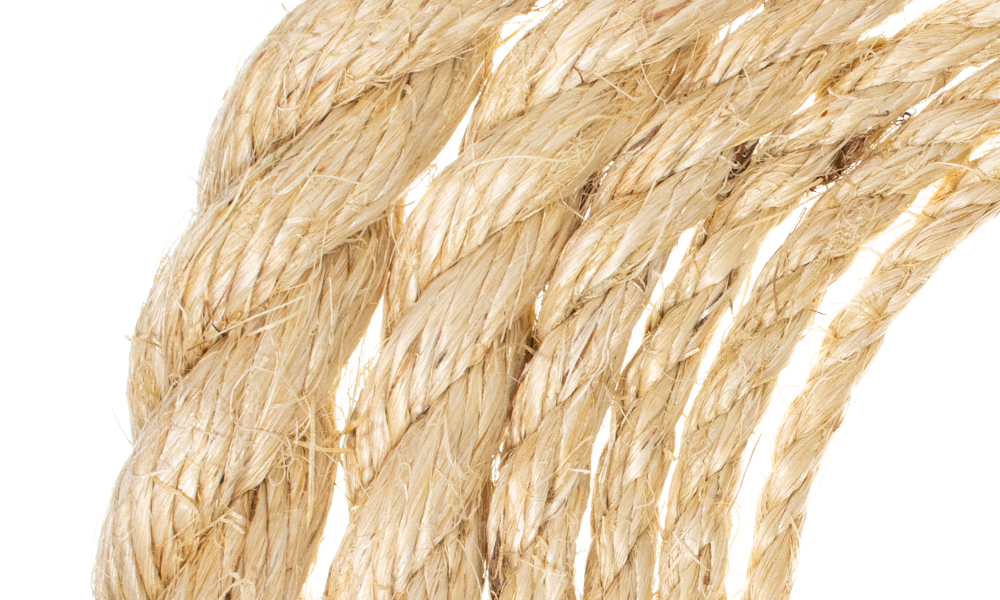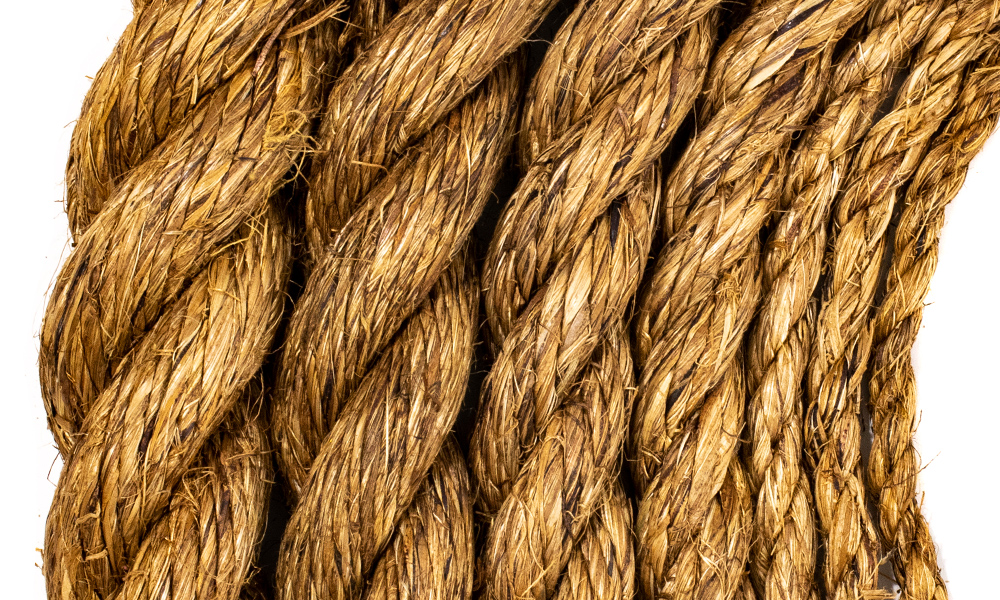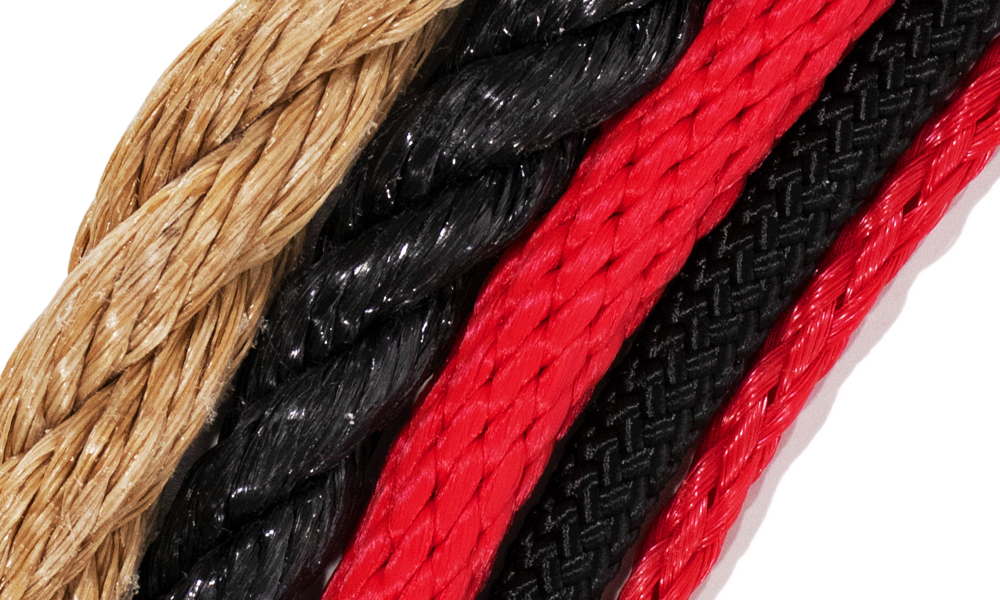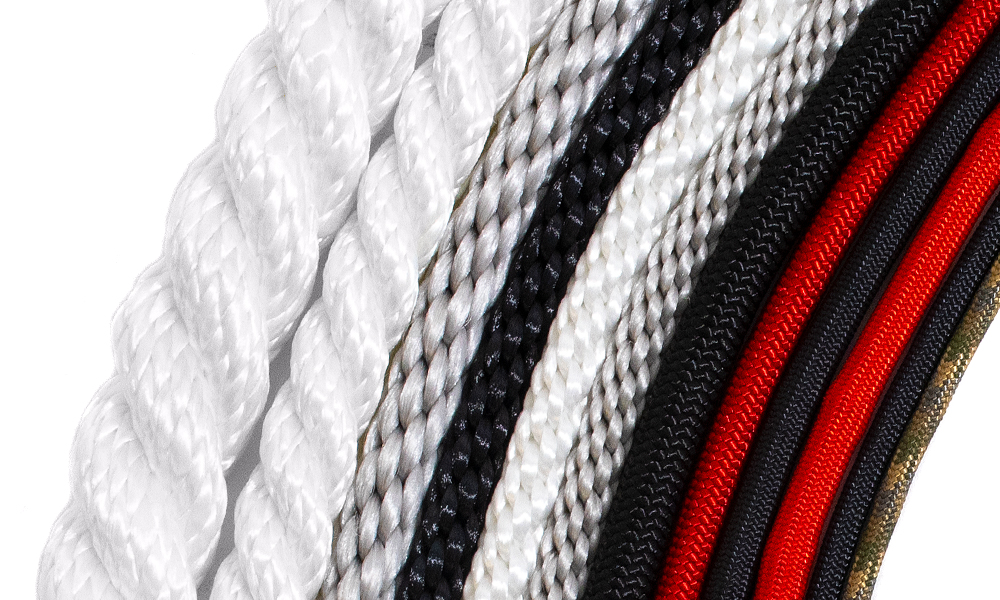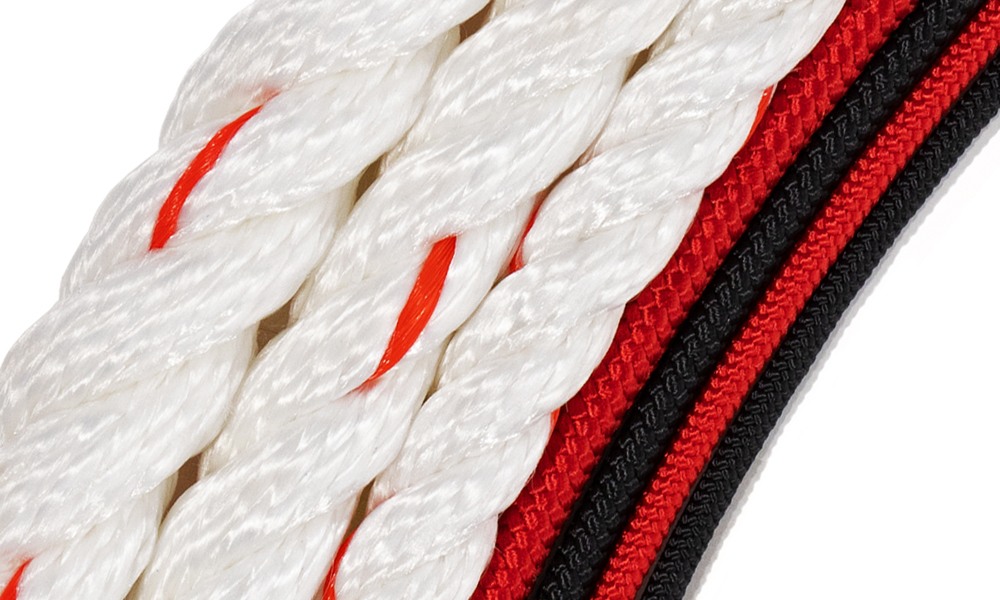Natural Ropes
Natural fibers ropes are made out of fibers that are cultivated from organic plant materials. Due to the natural composition, the ropes are more prone to mildew and degradation when left in the elements. Pet owners and landscapers are drawn to these ropes because of their organic make-up and appearance.
Cotton
Natural Cotton Rope is unbleached, undyed, and grown in the USA. Unlike other cotton ropes that are made from a blend of polyester or acrylic fibers, this rope is made with 100% cotton. The soft and smooth texture of the natural fibers will give macramé and knotting crafts a natural, homespun look, and are easily dyeable for a unique appearance.
Sisal
Sisal fiber rope is one of the most durable natural-fiber ropes. While exceeded by manila rope in weight rating, sisal is more resistant to rot than manila. It is also more resistant to breaking down in salt-water and in ultraviolet light than other natural fibers. Sisal is a more economical option that offers many useful qualities and benefits.
Manila
Made from the Abaca plant, Manila rope is 20% stronger than hemp, and much more economical. Its absorbent properties do cause it to rot faster around water, but because of its strength, ultraviolet resistance, and lack of stretch, it still remains a popular choice for nautical use and aesthetic purposes.
Synthetic Ropes
Synthetic ropes are made by modifying the chemical composition of their fibers. The man made structure and properties of these ropes are manufactured to fit a wide array of uses and to increase strength, performance, and other features of the rope.
Polypropylene
Braided and twisted style polypropylene ropes can float on water while absorbing little to no water. They are dielectric, which means they can insulate against electric currents. With a melting temperature varying between 320- and 330- degrees Fahrenheit, they can withstand projects that include higher amount of heat. Resistant features of the ropes depend on their type and materials with some of them being protected against rot, mold, mildew, abrasion, petroleum, and ultraviolet light. This rope is best used for general purposes since it has a light weight and versatile design.
Nylon
With the main material of nylon being used in the ropes, there are a couple of cords that include other materials or various kinds of cording. Each of the ropes are resistant to abrasion, rot, mildew, mold, petroleum, and ultraviolet light, and a few of the cords are dielectric or able to insulate against electric currents. Nylon ropes and cords have a low to high stretch ability as well as a high break strength and higher elongation, which makes it easier for them to absorb shock.
Polyester
Polyester ropes have a variety of uses for camping, hiking, hunting, or doing activities around the house or yard. Depending on the kind of cording and its strength, they can be great for sailing, hoisting, railing, and putting together obstacle courses. The overall construction of the ropes can be either twisted or braided with none of them having the ability to float. However, they are able to insulate against electric currents and are resistant to abrasion, rot, mold, mildew, and petroleum. Their ultraviolet light resistance is excellent as well, so they won’t easily fade.

